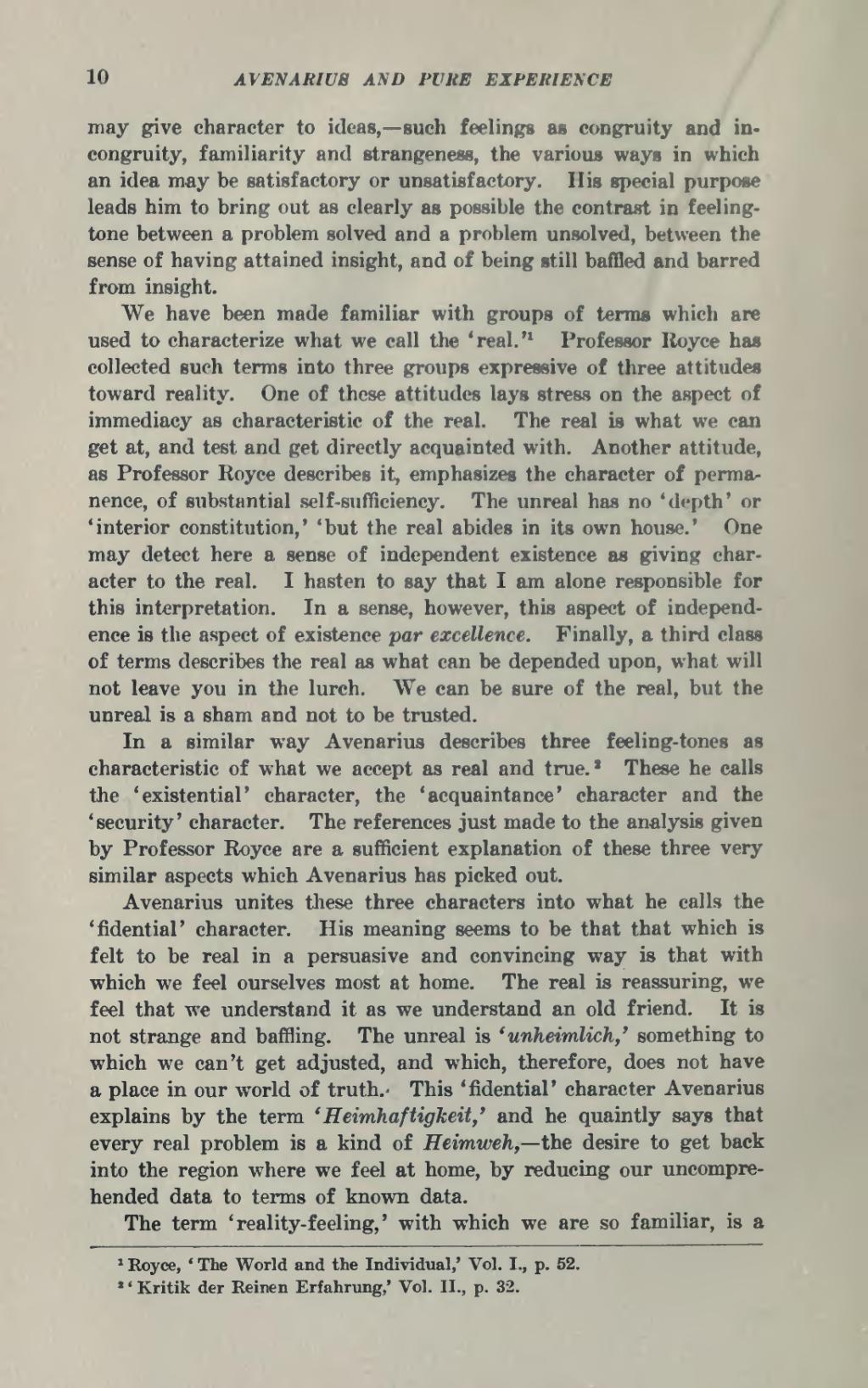may give character to ideas,—such feelings as congruity and incongruity, familiarity and strangeness, the various ways in which an idea may be satisfactory or unsatisfactory. His special purpose leads him to bring out as clearly as possible the contrast in feeling-tone between a problem solved and a problem unsolved, between the sense of having attained insight, and of being still baffled and barred from insight.
We have been made familiar with groups of terms which are used to characterize what we call the ‘real.’[1] Professor Royce has collected such terms into three groups expressive of three attitudes toward reality. One of these attitudes lays stress on the aspect of immediacy as characteristic of the real. The real is what we can get at, and test and get directly acquainted with. Another attitude, as Professor Royce describes it, emphasizes the character of permanence, of substantial self-sufficiency. The unreal has no ‘depth’ or ‘interior constitution,’ ‘but the real abides in its own house.’ One may detect here a sense of independent existence as giving character to the real. I hasten to say that I am alone responsible for this interpretation. In a sense, however, this aspect of independence is the aspect of existence par excellence. Finally, a third class of terms describes the real as what can be depended upon, what will not leave you in the lurch. We can be sure of the real, but the unreal is a sham and not to be trusted.
In a similar way Avenarius describes three feeling-tones as characteristic of what we accept as real and true.[2] These he calls the ‘existential’ character, the ‘acquaintance’ character and the ‘security’ character. The references just made to the analysis given by Professor Royce are a sufficient explanation of these three very similar aspects which Avenarius has picked out.
Avenarius unites these three characters into what he calls the ‘fidential’ character. His meaning seems to be that that which is felt to be real in a persuasive and convincing way is that with which we feel ourselves most at home. The real is reassuring, we feel that we understand it as we understand an old friend. It is not strange and baffling. The unreal is ‘unheimlich,’ something to which we can’t get adjusted, and which, therefore, does not have a place in our world of truth. This ‘fidential’ character Avenarius explains by the term ‘Heimhaftigkeit,’ and he quaintly says that every real problem is a kind of Heimweh,—the desire to get back into the region where we feel at home, by reducing our uncomprehended data to terms of known data.
The term ‘reality-feeling,’ with which we are so familiar, is a
- ↑ Royce, ‘The World and the Individual,’ Vol. I., p. 52.
- ↑ ‘Kritik der Reinen Erfahrung,’ Vol. II., p. 32.
